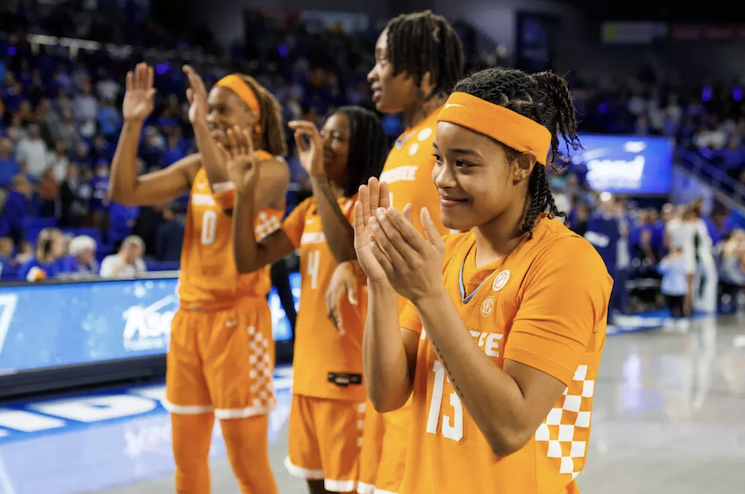
The reason the Vols ended up with a disappointing 9-4 record and fell short of winning the East this season wasn’t because of just one thing. Injuries, defensive meltdowns, and poor coaching decisions led to Tennessee’s four losses.
One thing that consistently wasn’t the problem, however, was the offense. And that’s a change from 2015.
It can be argued all four of Tennessee’s losses in 2015 were attributed to the offense. The Vols’ offense collapsed and was stagnant in the second half against Oklahoma, stalled and couldn’t find enough big plays against Arkansas, and Alabama’s elite defense just did what it did to most offenses that year: contain play-makers. The Florida loss happened in large part because of the bad defensive play call on fourth down late in the fourth quarter that allowed the Gators to score the game-winning touchdown, but the offense struggled mightily in the second half of that game too and had poor clock management on their last drive as well.
Fast forward to 2016, and the offense went from a reason Tennessee lost to a reason why they won and stayed competitive in games.
There’s only one game this season where Tennessee’s offense truly cost them a game, and that was the South Carolina loss. The Vols played their least effective offensive game of the season in that contest, and it cost them that game and the SEC East.
Other than that game, however, Tennessee’s losses this season weren’t because of the offense. In fact, the Vols’ offense improved in almost every aspect in 2016 compared to last season.
Last season, the Vols could run the ball and did so at a nearly historic rate. Tennessee ran for 2,908 yards on 617 carries, scoring 32 times. But the passing attack failed to provide enough balance to make Tennessee’s offense consistent and potent enough to win when it mattered most. The Vols managed just 2,582 passing yards and 17 passing touchdowns on the season. Granted, they only threw five interceptions too, but a 59.3 team completion percentage was far from good enough.
Tennessee completed just 36 passes of 20 or more yards in 2015. That number leapt to 50 such completions in 2016, and that’s part of the reason why the Vols’ offense was more consistent this season.
The Vols were much more efficient on offense this season, especially after the playbook seemed to open up a bit more after the South Carolina game. Even earlier on in SEC play, Tennessee’s offense looked better against the same competition it faced in 2015. Tennessee gained 240 fewer rushing yards in 2016 than they did last season, but they gained their 2,668 yards on exactly 100 fewer carries than in 2015, pushing their 4.7 yard per carry average from last year to 5.2 per carry this year.
And they did that while drastically improving their passing attack as well.
Tennessee’s passing game totaled 518 more yards than last season and scored 11 more touchdowns this season. Their interception numbers went up by seven picks, but Tennessee’s completion percentage was raised to 62.8 percent. That’s the highest team total since 2006 when the Vols completed 63.9 percent of their passes.
The Vols had their issues on offense for sure. Tennessee turned the ball over 26 times this season, the second-highest total in the SEC. But the Vols also had the second-highest points per game total in the SEC, scoring 36.4 points per game while also averaging the third-highest yards per play in the conference.
Was Tennessee’s offense always on top of its game this season? Not at all. The Vols’ offense still had a tendency to go into a shell at some of the worst times, and play-calling could still be erratic. But overall, the offense improved and became more consistent. The Vols offense helped win them the Florida and Georgia games. It kept them alive in the Texas A&M game even with them turning the ball over seven times, and the offense reached its peak against Kentucky and Missouri.
If one side of the ball can be blamed for Tennessee’s downfall this season, it’s the defense, not the offense. The defense couldn’t stop the Aggies consistently enough for the Vols to beat Texas A&M, Alabama had a field day against an injury-riddled Tennessee defense, South Carolina made the secondary look silly with a true freshman quarterback, and Vanderbilt did the same with their sophomore quarterback.
The Vols’ offense was far from perfect in 2016, but it was a much better product this season. And unlike last season, it wasn’t the reason the Vols fell short of their goals.



